All Stories
-
 Humans
HumansLauren Schroeder looks beyond natural selection to rethink human evolution
Paleoanthropologists studying the fossil record have long focused on natural selection, but other processes play a big role too.
By Anna Gibbs -
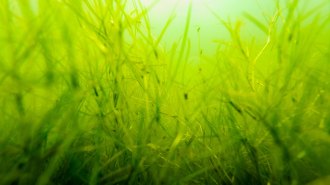 Ecosystems
EcosystemsThis seagrass is taking over the Chesapeake Bay. That’s good and bad news
Higher water temperatures are wiping out eelgrass in the Chesapeake Bay and weedy widgeongrass is expanding. Here’s why that seagrass change matters.
By John Carey -
 Health & Medicine
Health & Medicine50 years ago, scientists thought coffee might treat hyperactivity
Decades of follow-up research into whether caffeine can treat the symptoms of kids with ADHD has come up with more questions than answers.
By Aina Abell -

-
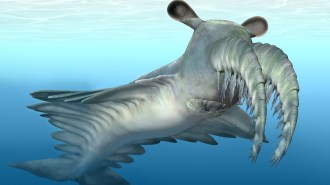 Paleontology
PaleontologyThis ancient, Lovecraftian apex predator chased and pierced soft prey
Half a billion years ago, Anomalocaris canadensis probably used its bizarre headgear to reach out and snag soft prey with its spiky clutches.
By Nikk Ogasa -

From our brains to gravity, how science surprises us
Editor in chief Nancy Shute discusses how science unravels mysteries, such as missing chunks of brain, gravity's strength and the start of the Viking era.
By Nancy Shute -
 Chemistry
ChemistryTear-resistant rubbery materials could pave the way for tougher tires
Adding easy-to-break molecular connectors surprisingly makes materials harder to tear and could one day reduce microplastic pollution from car tires.
By Skyler Ware -
 Psychology
Psychology‘Fires in the Dark’ illuminates how great healers ease mental suffering
Kay Redfield Jamison’s new book examines approaches used throughout history to restore troubled minds and broken spirits.
By Bruce Bower -
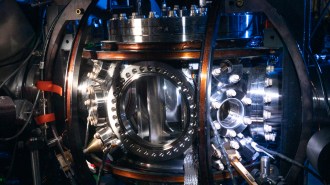 Physics
PhysicsElectrons are extremely round, a new measurement confirms
The near-perfect roundness deepens the mystery behind how the universe came to be filled with matter as opposed to antimatter.
-
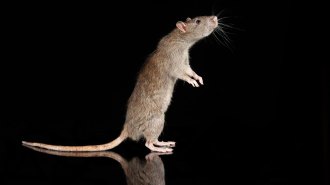 Life
LifeRats sense the wind with antennae-like whiskers above their eyes
Long, thin whiskers above rats’ eyes appear to sense faint air movement, which may be helpful for detecting moving threats in dark, narrow corridors.
By Jake Buehler -
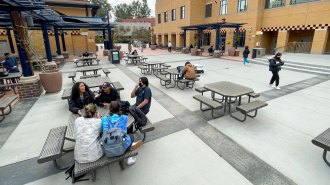 Science & Society
Science & SocietyCalifornia’s long-standing affirmative action ban hints at what’s to come
Alternative race-neutral polices to affirmative action have fallen short in encouraging diversity in California schools, research shows.
By Sujata Gupta -
 Climate
ClimateAntarctic sea ice has been hitting record lows for most of this year
Since hitting a record low minimum back in February, the amount of Antarctic sea ice has stayed well below normal all year.